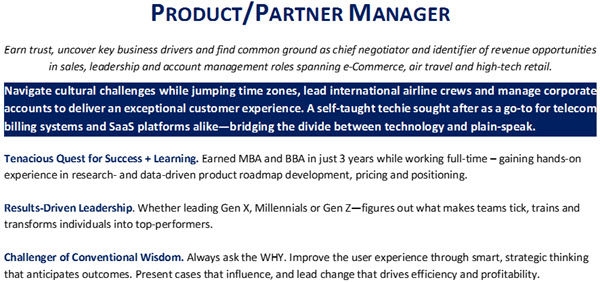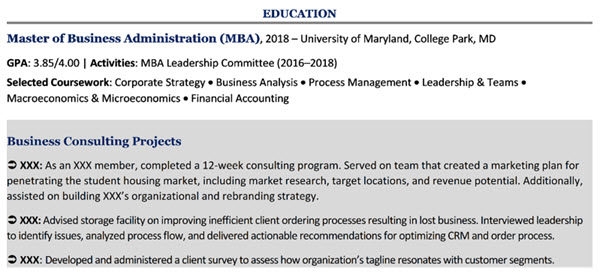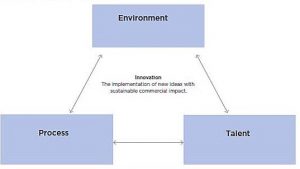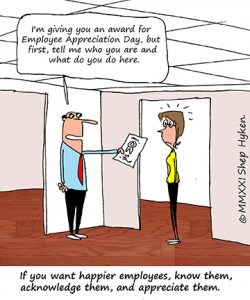— March 11, 2019
It’s never too late to get a jump start on a new career.
Many enter graduate programs after years in the workforce with the goal of using a master’s degree to close a skills or knowledge gap.
Once the coursework is almost complete and graduation is on the horizon, many have a dream job in mind, but…
Many new/pending graduates struggle with the next step –- how to position themselves, and their new degree, on a resume.
The New Resume
While the components of a resume remain the same whether your degree is old or new, additional language must be included and the order of how each section appears should be slightly different.
Let’s start from the top.
Headline & Branding Paragraph
When it comes to the headline that appears at the top of a resume, a new student’s headline should include their career target. If the role contains a few sub-categories or industry options, be sure to list those as well.
When it comes to the summary or branding paragraph that follows the headline, I recommend calling out the newly-earned degree so that it is front and center. Here are two examples:
EXAMPLE #1

In this example, the client had been a construction project manager for years and leveraged his pending MBA to target a Big Four management consulting role.
We listed the types of consulting for which he was well-suited based on his work and school experience, as well as the industries where he’d managed construction projects.
The two-line paragraph at the bottom immediately tells the reader that this person brings to the table both MBA learnings as well as ten years of career expertise.
EXAMPLE #2

The client in example #2 worked for years before enrolling in school to earn both an undergraduate and graduate degree back-to-back.
He employed his newly-completed education to land quickly as a product manager in the travel industry – a role that truly blended his leadership expertise, tech and travel industry experience, and MBA classroom acumen.
Although longer than example #1, both call attention to earning the degree and speak to how combined employment and education experience make each candidate well suited for their targeted roles.
Education, Coursework and Projects
When using a new degree to jumps tart career change, I recommend placing the Education section above the Experience section rather than below it – so that it is the first thing the reader sees after skimming the headline and summary.
Unlike the minimal information you would include if your degree was years in the past (just the degree, major and institution), when targeting a new role upon completing school, you should also include GPA, projects and coursework.
- GPA
When it comes to GPA, include only if either the overall or the specialty study is above a 3.5 on a 4.0 scale.
- COURSEWORK
Be sure to include coursework relevant to the job target. More often than not, course titles align with keywords found in job postings of interest and will improve the resume’s chances of doing well when read by Applicant Tracking Systems (ATS).
- PROJECTS
When previous work experience doesn’t align with the career target, it’s critical to call out work completed while in school. This can and should include everything from group projects to papers, competitions to pro bono work to case studies. See the two examples below – which include all of the above.
EXAMPLE #1

EXAMPLE #2

Don’t Forget to Tap into Your School’s Career Services Department
Most colleges and universities offer career services support to assist students with career fairs, interview prep, resume and cover letter writing assistance, and more. Equally important, career centers can help you tap into what for many institutions is a robust alumni network.
With the help of career services, your professional and alumni network, and career marketing documents that position your graduate work to its fullest, you can successfully leverage your degree to make a successful career change.
Previously appeared on Job-Hunt.org
Business & Finance Articles on Business 2 Community
(36)




